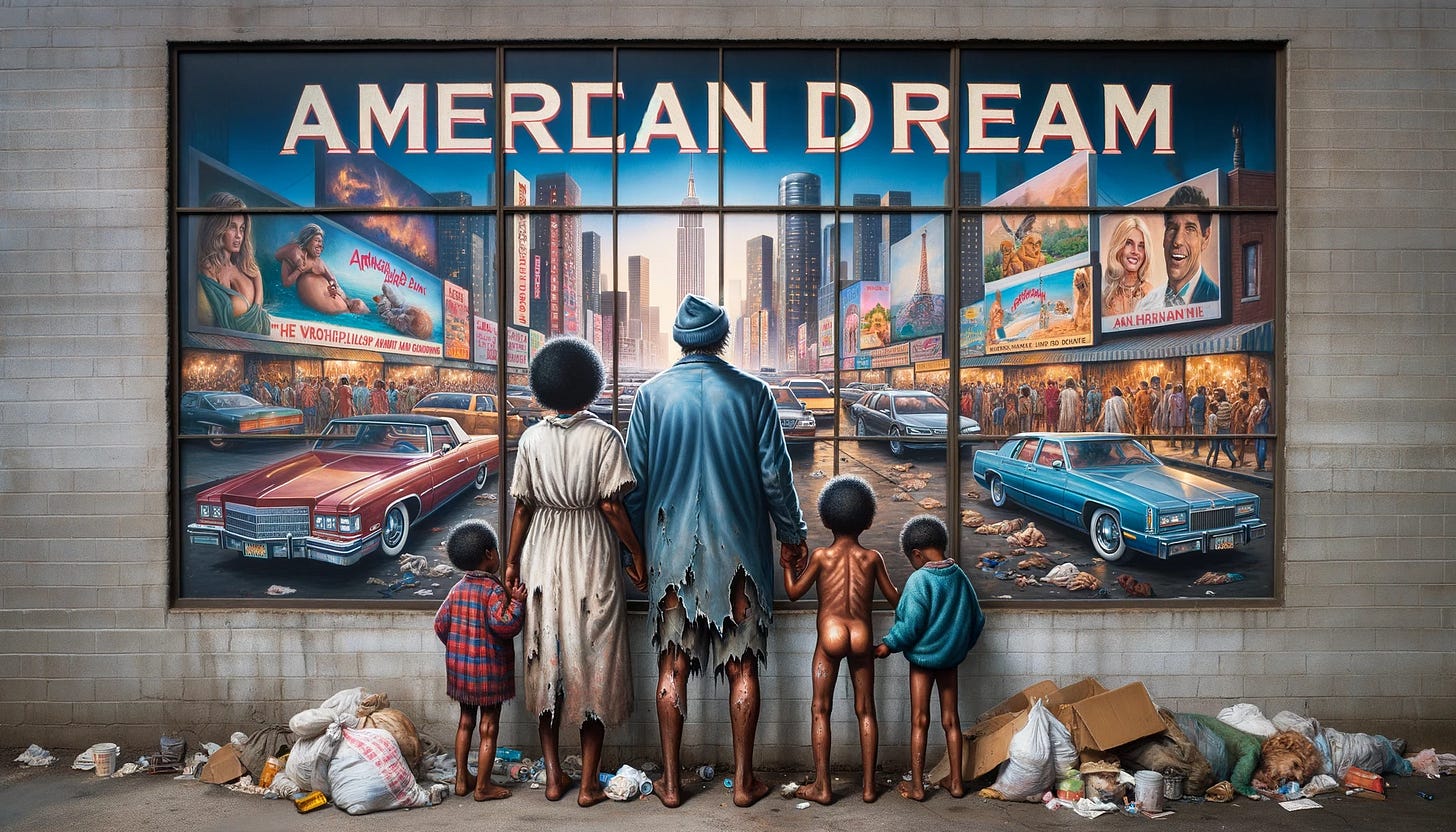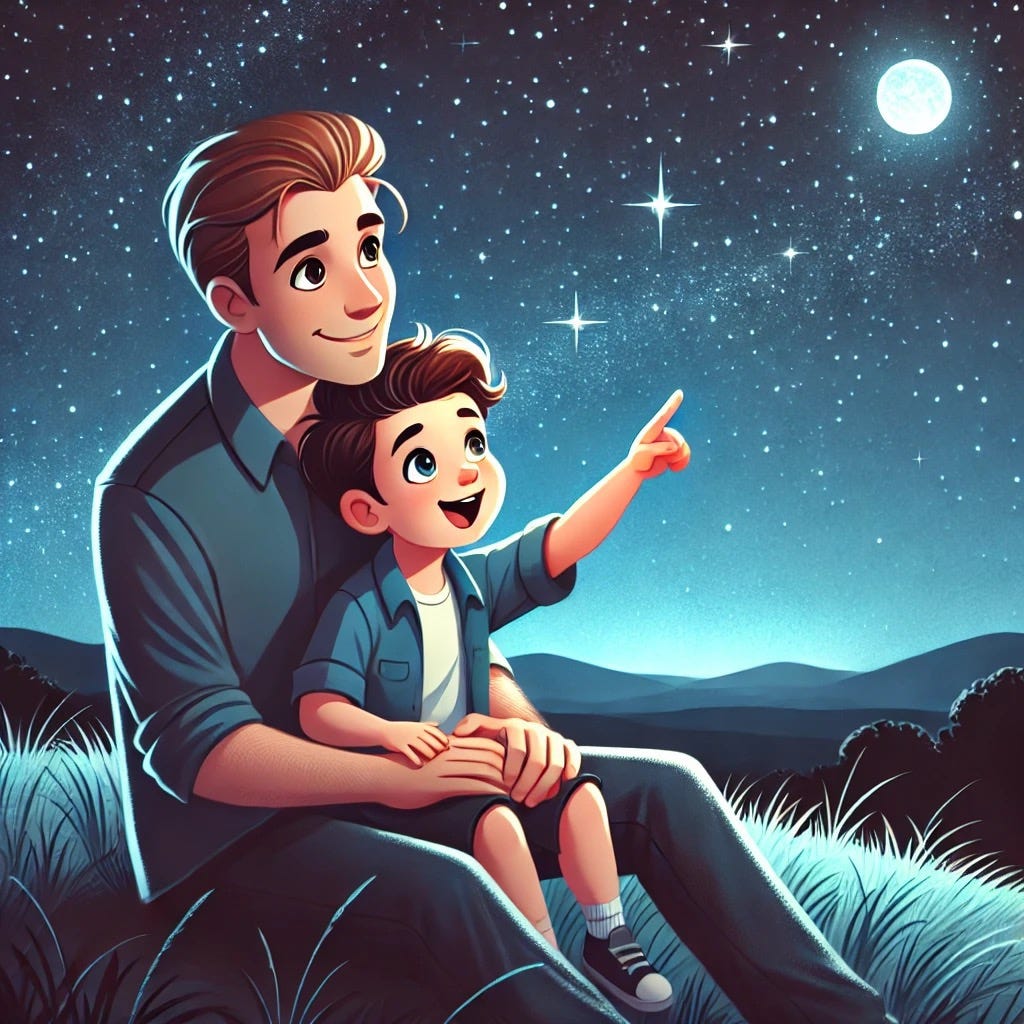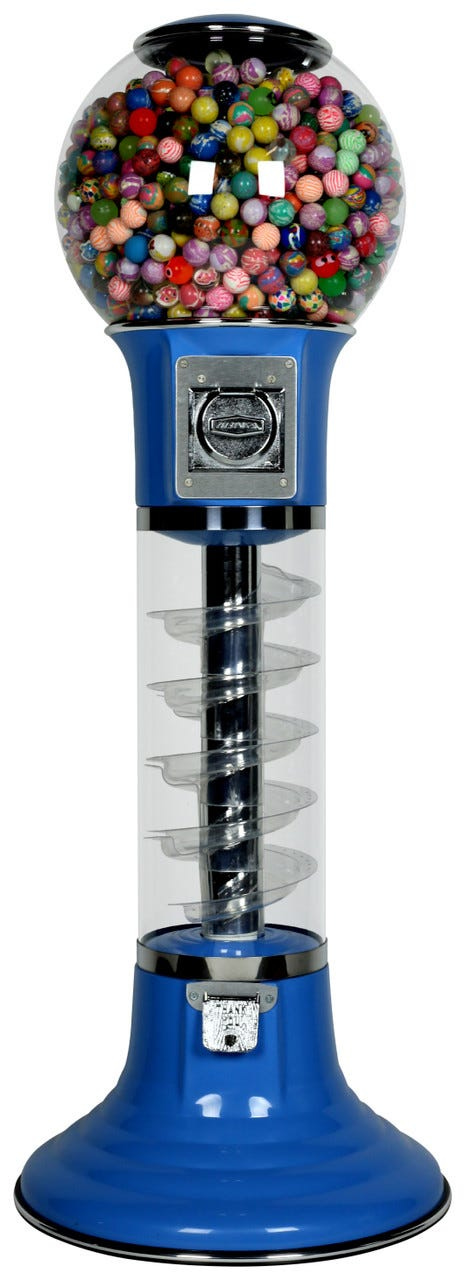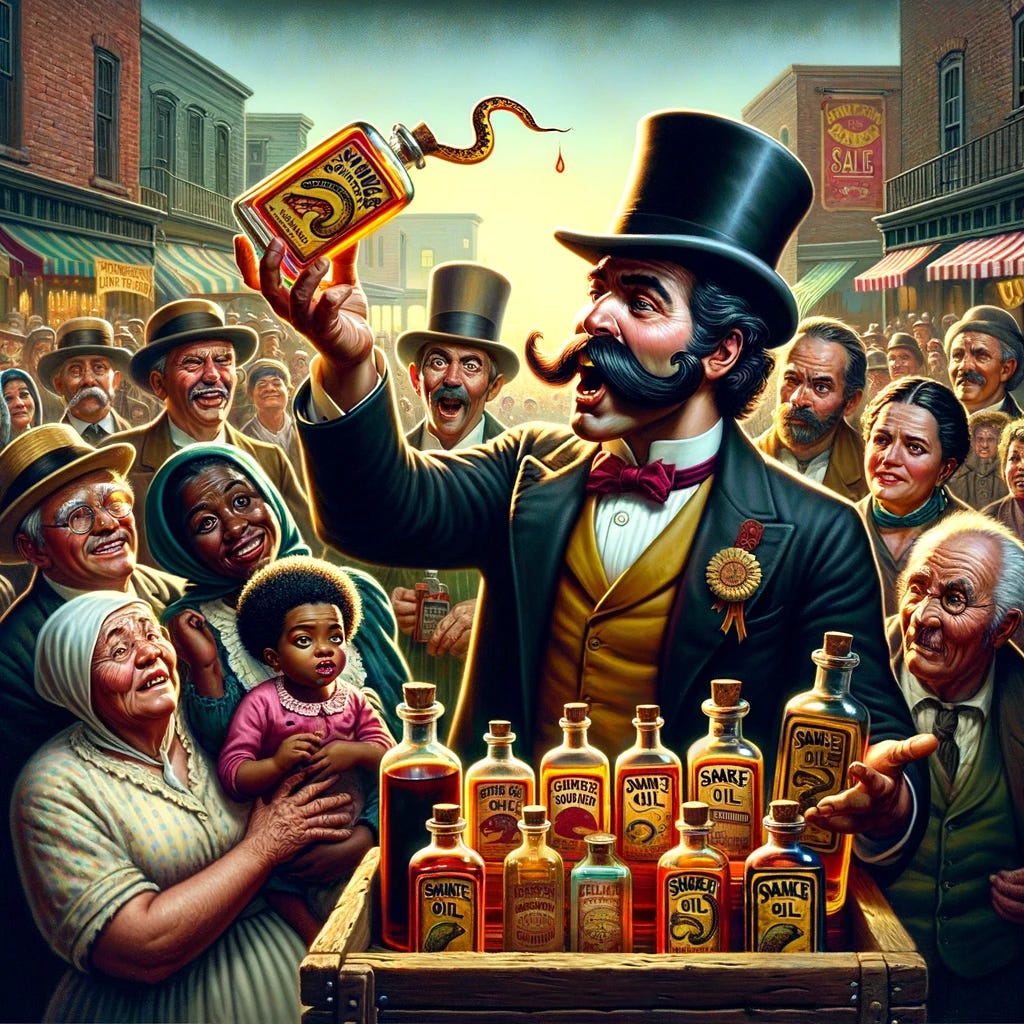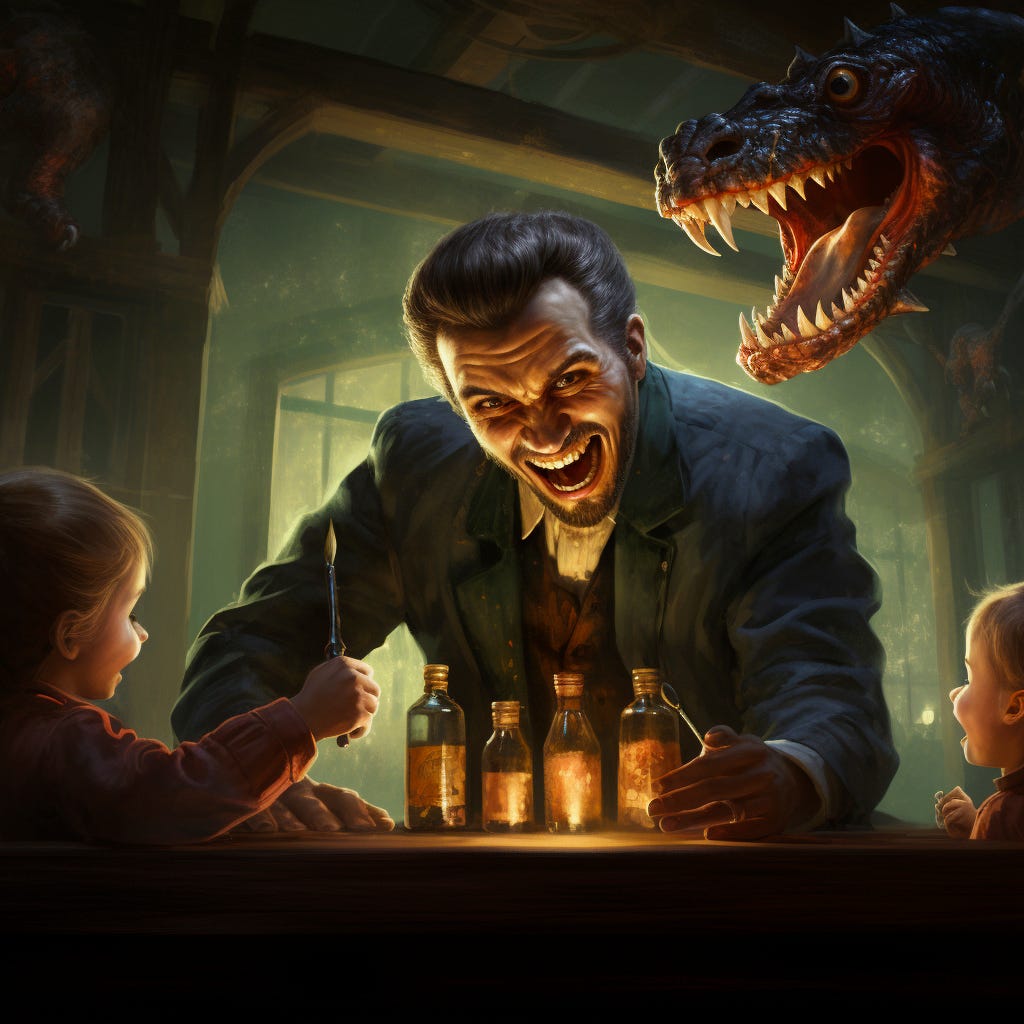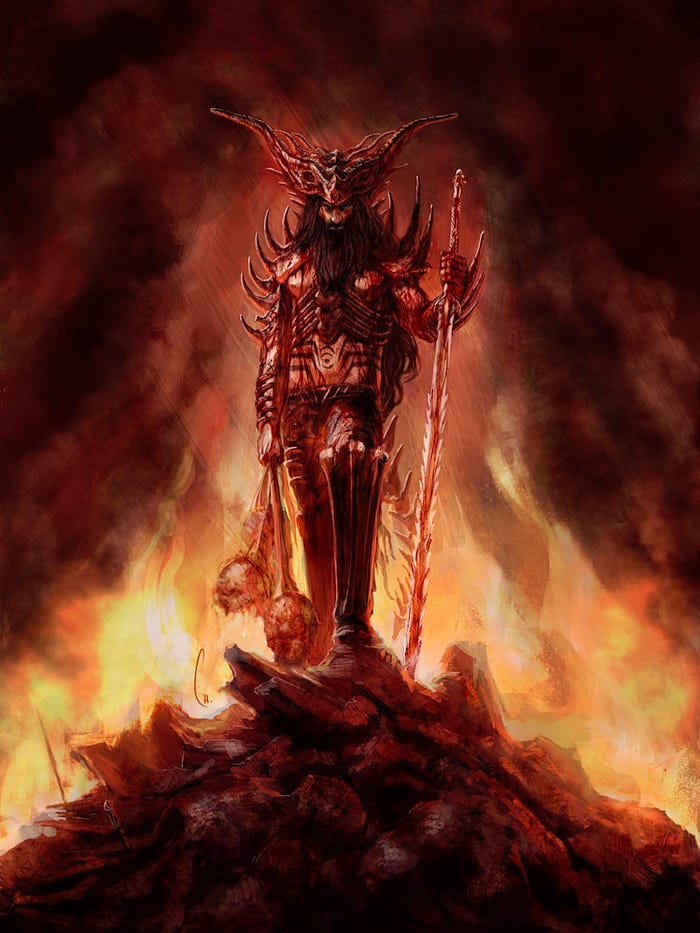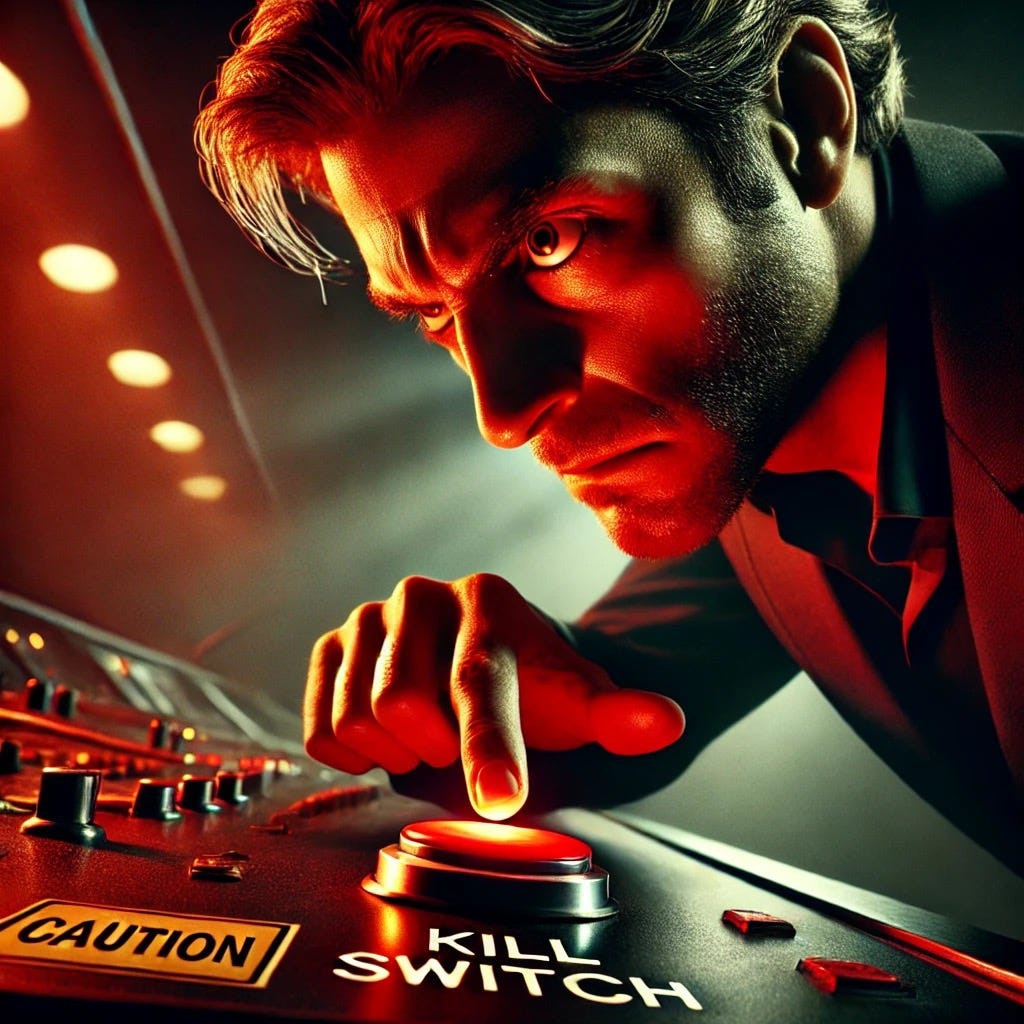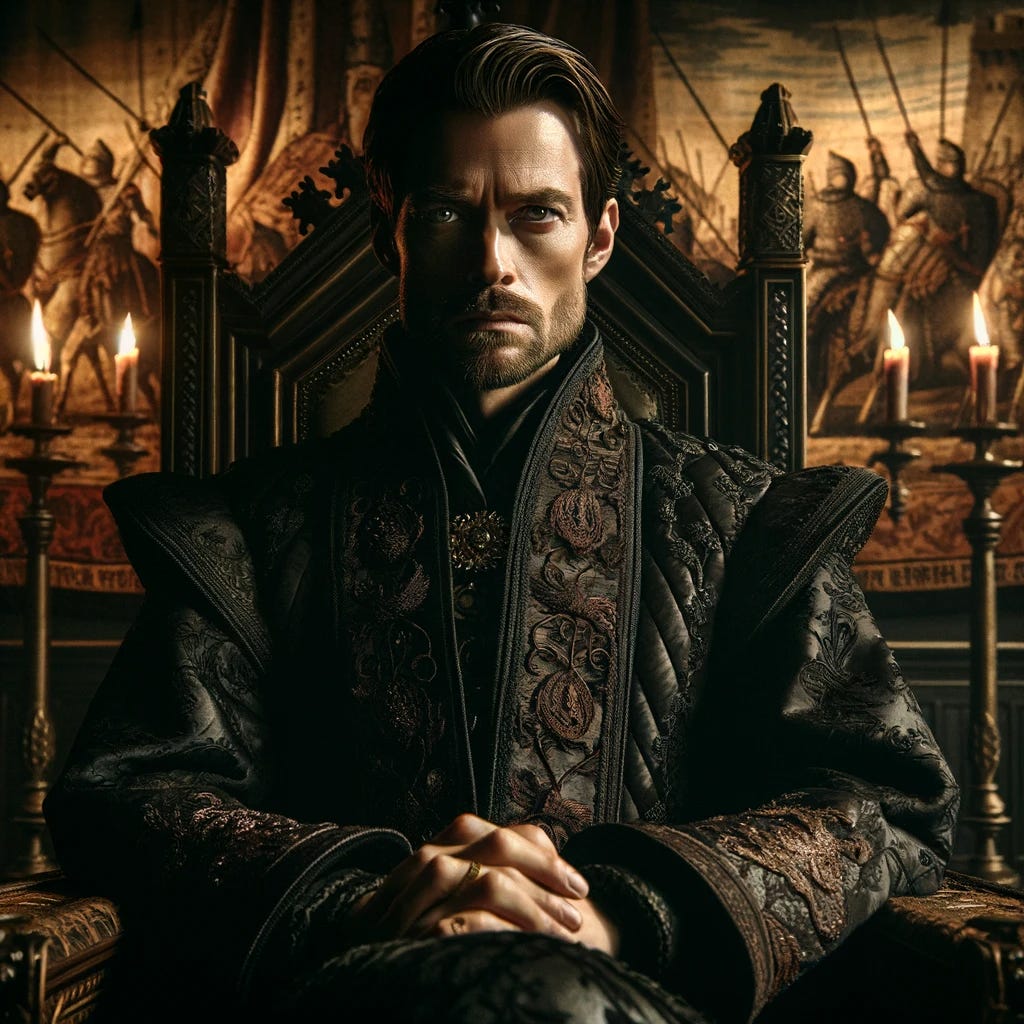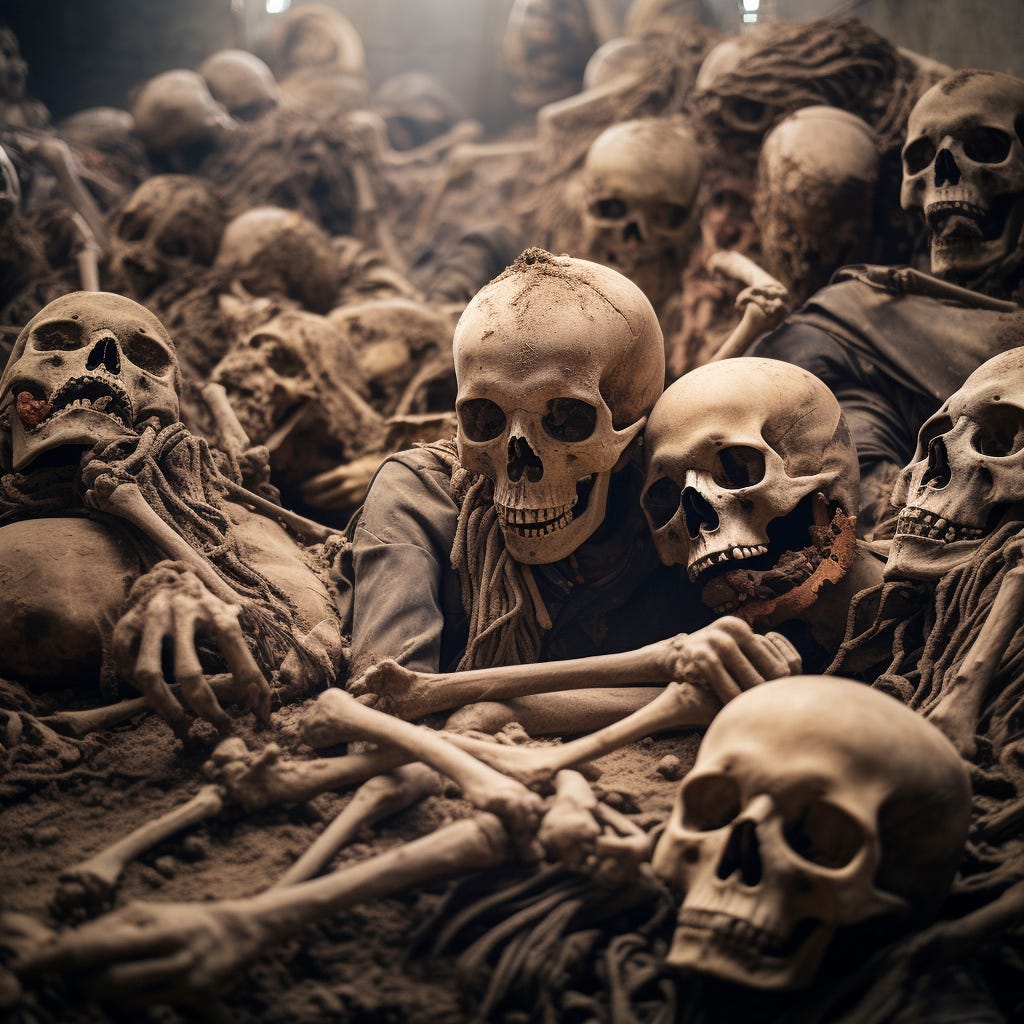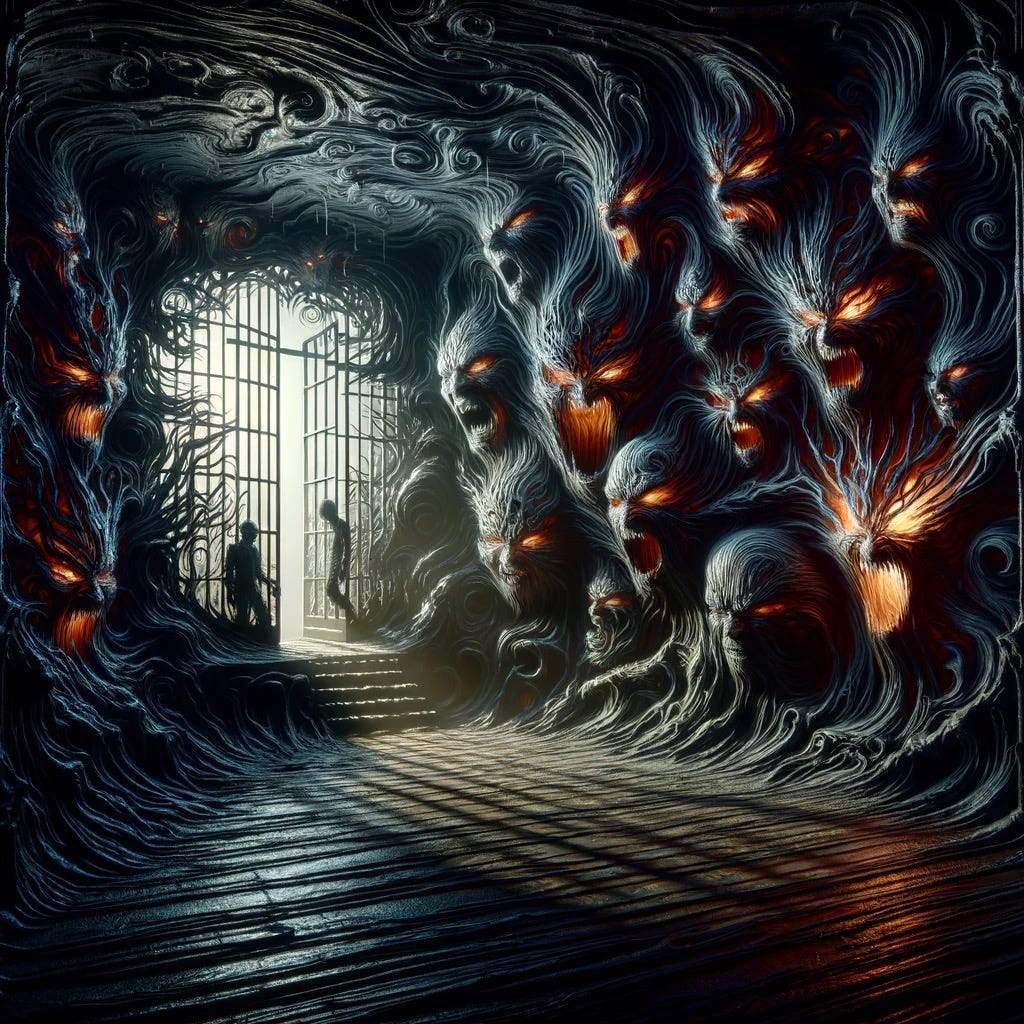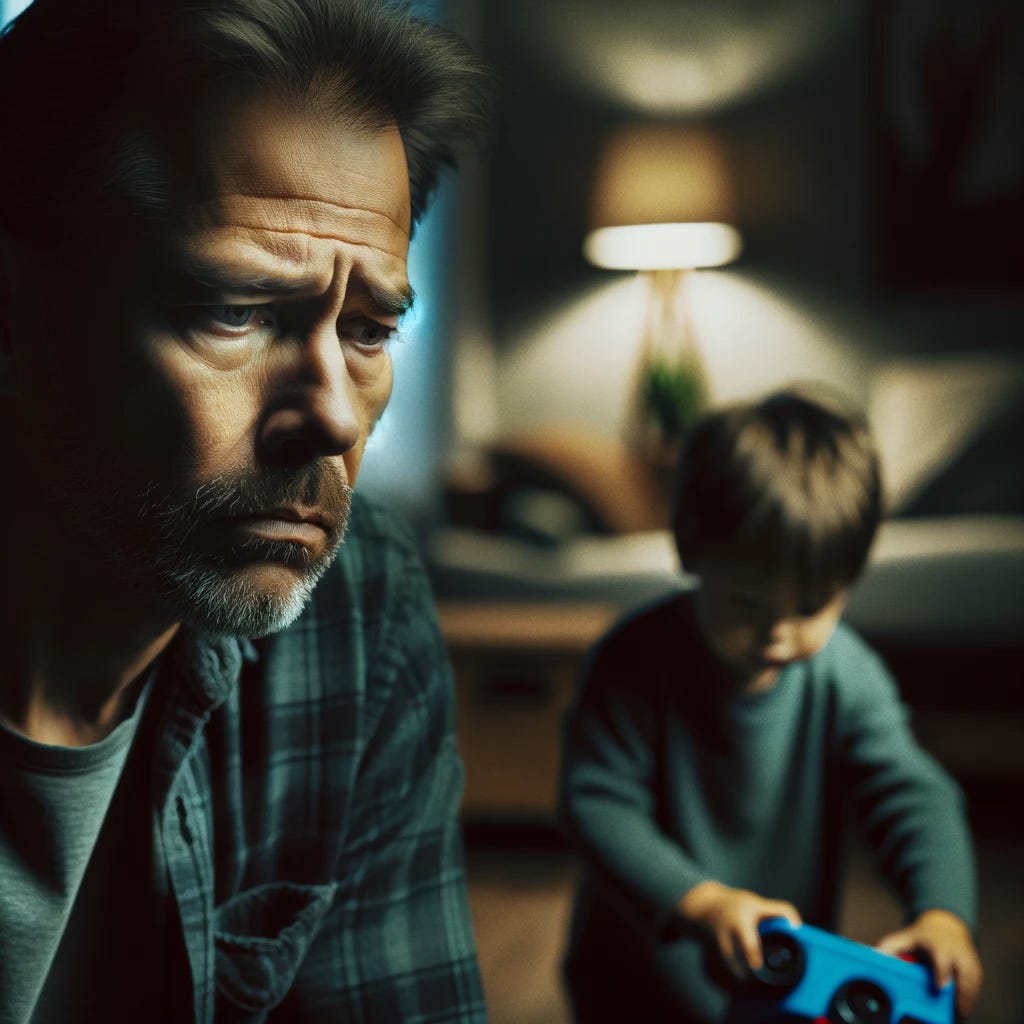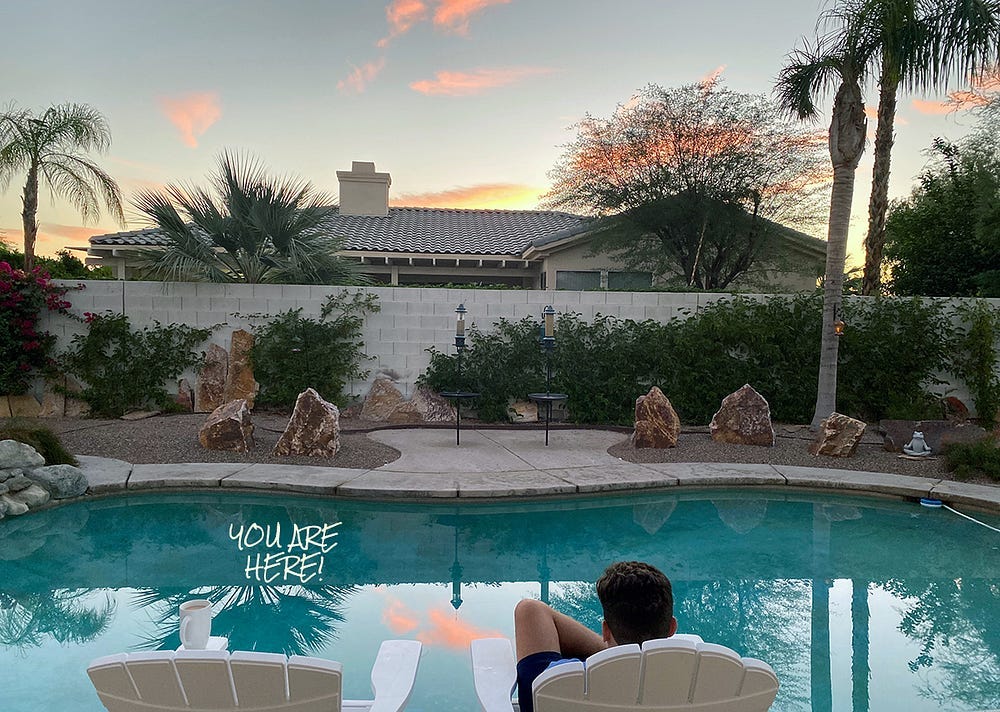From Struggles to Stars: The Transformative Joy of Parenting a Child with Autism
A Special Needs Parent’s User’s Manual for the Heart
This is the guide I needed over 20 years ago when I first learned my path as a parent would look different. I didn’t know then what I know now.
My son received a diagnosis of moderate to severe autism. That moment shifted everything. The weight of it settled heavy, and I searched for direction, for something—anything—that could help me navigate the unknown.
If I’d had this guide back then, it would have been a lifeline.
Holding His Hand, Holding His World
The boy is mine, grown now, though his mind lingers in places others leave behind. Autism claimed its space in him, shaping him in ways both wondrous and shattering.
He stands apart, a mosaic of purity and disorder.
His heart breathes without the weight of ego. He knows no cunning, no deceit. In his world, envy and greed never take root. He walks through life untethered to the dark shadows most of us wrestle to bury.
Yet, there is a cost. Chaos often consumes his mind, pulling him into storms he cannot navigate alone. Confusion overwhelms him, leaving him adrift. In those moments, I see how deeply he depends on us—on me.
His world requires vigilance. I hold his hand when we cross a street, just as I did when he was small, because that small act of safety matters more than I ever imagined it could.
He cannot be left unguarded, not for a moment. His needs demand our presence, our energy, our patience.
Twenty-four hours each day, he remains at the center of our world.
When his diagnosis came, it cleaved through my wife and me, leaving no space for denial. We stood face-to-face with a life we never sought, one we hadn’t imagined. His condition pressed us into corners we didn’t want to explore, where our own failings and limits glared back at us. Yet, in those spaces, something shifted. We learned to stretch, to yield, to grow. What we once resisted became the ground where new strength took root.
Our fate found us, unbidden but undeniable. And with it came a love so deep, it refused to crumble.
The Eyes That Wouldn’t Meet Mine
We noticed it early, though we couldn’t name it then. Our son refused to meet our eyes, even as a baby. He’d turn away when we leaned in, our faces filled with hope, longing for connection.
No matter how much we cooed, pleaded, or tried to catch his gaze, he wouldn’t give it.
Not once.
It cut deep, but we told ourselves it was a phase, a quirk, something he’d outgrow.
We carried that denial like a shield, hoping each new day would bring a breakthrough. But the days stretched into months, and the quiet doubts grew louder. We couldn’t ignore the signs, though we still tried.
We clung to the dream, the life we thought we deserved—a bright, perfect family living a picture-book version of the American Dream. But we knew we were on the outside looking in, forever denied our perceived birthright.
Then, one afternoon, my wife came across an article. It listed the signs of autism, each one clear and damning.
She read it once, then again, and her hands trembled as she handed it to me. I scanned the words, but I didn’t need to finish.
Our son checked every box.
In that moment, we knew. We didn’t say it aloud, but the truth slammed into us like a rogue wave, tearing through everything we’d built in our minds. The perfect family, the perfect future—it all shattered.
The life we’d imagined didn’t exist anymore, and something else, something terrifying, took its place.
We sat there, the magazine between us, the silence stretching like a chasm. It wasn’t good news. It wasn’t hopeful. It was the end of the life we thought we’d live, we didn’t yet know what would rise from its ashes, or if anything would arise at all.
The Incipient Error
When we first accepted his diagnosis, we stumbled into an error so profound it shaped the next 15 years of our lives. We didn’t see it then, but that moment planted a mistake in our hearts, one that festered quietly, feeding on fear and misunderstanding.
We thought it was the end—terrible news, a death knell for the life we’d imagined.
It wasn’t. But we believed it was.
We saw only the loss, the heavy limitations placed on our son and, by extension, on us. He couldn’t care for himself, couldn’t contribute to the world in the ways we thought mattered. And we let that belief shape our reality.
Friends and family chimed in, confirming our worst fears. They meant well, I suppose, but their pity spread over us like an oil slick on water, leaving a greasy residue. They painted a picture of a life forever diminished, of dreams snuffed out.
Support groups didn’t help either. They wrapped the tragedy in camaraderie, teaching us to swallow despair like a bitter pill and wear our suffering as a badge of honor.
They told us to embrace the "shit sandwich" of our new life.
That’s not support. That’s bullshit.
Looking back, I see it for what it was: the incipient error, the false story we told ourselves and let others reinforce. That belief—that we had lost everything—poisoned us. For 15 long years, it stole moments of joy, opportunities for growth, and a deeper understanding of what our son could bring into the world.
If I had known then what I know now, we could have avoided all of it—the heartache, the wasted time, the needless suffering. That’s why I wrote this, why I’m telling you now. If you find yourself standing where I once stood, don’t let this mistake take root. Don’t let those years slip away.
Learn this lesson sooner. Rewrite the story before it begins.
If you want to really explore the power of incipient ideas, I suggest you watch the movie Inception. It’s incredible, and it makes the point I’m pointing to here better than I ever could.
Fixing What Was Never Broken
When we first realized our son faced challenges, my wife and I did what most parents would do. We rolled up our sleeves and decided to fix it.
We approached it like a problem to be solved, like an illness that needed treatment. It seemed like the right thing to do—what parent wouldn’t try to help their child? But looking back, it wasn’t our actions that caused the harm. It was the intention behind them.
We wanted to change him.
We set out to cure him, as if who he was—his very essence—needed erasing.
Without realizing it, I rejected my own child.
Not in words, not in actions he could see, but deep inside. In the quiet, unspoken corners of my heart, I refused to accept him as he was. I held onto a vision of who I thought he should be, who I wanted him to be. That refusal, that rejection, poisoned me.
It crept in silently at first, disguised as good intentions. I thought I was fighting for him. In truth, I fought against him. I told myself I wanted the best for my son, but what I really wanted was to mold him into someone different.
The weight of that realization crushed me.
Now, I see him as he is, and I feel peace. I still want him to grow, to thrive, to push past the limits the world imposes on him.
But the difference is this: I no longer see him as broken.
I no longer reject the boy standing before me in favor of a version of him that doesn’t exist. I love him fully, without reservation or conditions. It took me far too long to get here, but I arrived.
We still want him to grow and improve, and we make every effort and accommodation for him, but while striving for more, we are entirely content and happy with him, just the way he is.
Fighting and Losing
I once bought into a lie wrapped in noble intentions. I believed the fight was everything—that I would battle for my son, no matter the cost, until he was "cured," "fixed," or made whole in the way the world measures it.
It sounded righteous, even heroic, but it wasn’t.
It was poison.
That belief didn’t champion my son; it rejected him. Every ounce of effort I poured into "fixing" him set my intention against accepting who he truly was.
I thought I fought for him, but I really fought against him. Against the very essence of who he is.
I didn’t linger in that mindset long, thank God. The war I wanted to wage could not be won, and I realized the only sane move was to surrender before it began. The cost of that fight—what it would take from him, from me, from our family—was too great.
The toxic idea that I could or should "fix" him had to die.
If you find yourself there, ready to march into that same battle, hear me: you will not succeed. Your love for your child will not grow stronger by rejecting their truth.
You cannot fight for them by trying to erase them. Let go of the need to "cure" and embrace them as they are.
I learned this lesson the hard way. I hope you don’t have to.
Believing I could cure him felt righteous, but it masked a rejection of the boy who stood before me.
Anger, Anger, and More Anger
Anger struck first.
It always does when life hands you something you don’t want. Most people lash out—at someone, something, or the unanswerable void of God or Fate.
I felt it too, that fiery, consuming rage. It burned bright, masking the deeper truth beneath it. Anger makes you feel like a victim, but it only delays the reckoning. It distracts you from the sadness waiting below.
When I heard my son’s diagnosis, I felt my dreams collapse.
The perfect future I imagined crumbled into dust, leaving nothing but an unbearable emptiness. The anger came fast, but it didn’t last. It never does. Beneath the rage, I found something colder, heavier—an ocean of sadness.
Every parent of a special needs child faces it sooner or later. It’s not the kind of sadness you cry off in a single night. It’s a deep, unrelenting despair that swallows you whole. The weight of it feels like drowning, like plunging into waters so cold they steal the air from your lungs.
I thought I couldn’t survive it, but I had no choice.
None of us do.
You have to let yourself fall into that sadness. You have to cry until the tears run dry, until they carry the pain out of your heart.
Only then does the water begin to clear. Only then can you find your footing again.
The tears don’t fix what’s broken, but they cleanse the stains, making room for something new. There is no shortcut, no way to avoid it. You must go through the sadness, or it stays with you forever.
Green Day writes some of the finest and most moving songs I’ve encountered. Masterful. This song aptly captures the death of a parent’s dreams for their child and the despair that follows.
When a White Sheet Made the World Disappear
Life with my son often felt like a death by a thousand small wounds, each one cutting deeper than the last.
Taking him out into the world brought a constant stream of reminders that he didn’t fit the mold. When he was a toddler, the other kids played along to Itsy-Bitsy Spider, their little hands weaving the motions effortlessly. My son sat frozen, unable to follow. My wife watched from the sidelines, tears spilling silently, powerless to help him bridge the gap.
Those moments came often—small disappointments piling up like a mountain of stones. When he was nine, we bought a gumball machine because he loved watching the bright candies spiral down the track before landing in his hand. He couldn’t stop asking for more, endlessly clambering for gumballs, and we thought we might have to take it away. Instead, I draped a thin towel over it. Just like that, it vanished from his world. He walked past it without a glance, its presence erased by a flimsy white sheet.
It felt wrong, unfair.
Those moments stabbed at me, one after another, each a fresh reminder of his limits. The sadness dug deeper because we hadn’t yet accepted his condition.
Each incident screamed at us: Your child is broken.
That thought tore us apart. It poisoned moments that could have been met with love or understanding, twisting them into pain.
Looking back, I see the true tragedy. The sadness wasn’t just in his struggles—it lived in our refusal to embrace him as he was. We created a shadow of grief that didn’t have to exist. Each disappointment hurt twice as much because we let it define him, rather than seeing beyond it.
When Desperation Meets Deception
Desperation makes fools of us all. As parents of a special needs child, my wife and I became prime targets for hucksters promising cures where none existed. The world teems with con artists ready to prey on parents like us, selling hope in bottles of snake oil.
We clung to stories like Lorenzo’s Oil, where a parent’s relentless pursuit uncovered a miracle. Those stories feed the delusion that we might find the cure, that we might become the exception. But it never happens. It won’t happen.
This scene is gripping. The worst news a parent could possible obtain.
The scams never end. If you have money, someone will find a way to take it. I remember a family who bought a hyperbaric oxygen chamber for their home, believing it held the key. I wired stereo speakers to my son’s crib, playing brainwave entrainment music to manipulate his brain states. It felt hopeful then. Now, it feels absurd. Once, we sat through a sales pitch from a doctor pushing magnetic resonance therapy. The price exceeded the cost of a new car. For a moment, we almost believed it.
Parents throw themselves into these schemes—gluten-free diets, mineral chelation, countless other paths. It’s not that these approaches bring no benefit; sometimes they do.
But they don’t cure autism. They never will.
They don’t cure what isn’t a disease.
The worst part comes when the salesman, eyes gleaming with false sincerity, leans in and says, “What if this was the cure? Wouldn’t you regret not trying?” That pitch cuts deep, twisting the knife in every fear and hope we carry as parents.
It’s evil, pure and simple.
I feel a rage so hot it could send these people straight to Hell, and I wouldn’t flinch. But that rage won’t bring back the money or the time.
If I could give you one piece of advice, it’s this: save your money. Don’t buy the lies. Don’t chase the snake oil.
Accepting The Awful Truth
Parent support groups and charities often present autism as a tragedy, something parents must learn to endure. They speak of acceptance, but what they really mean is resignation—a grim acknowledgment of what they see as a broken child and an unbearable fate. I sat in those meetings and heard the quiet despair masked as solidarity. I saw the tears, the sagging shoulders, the parents convincing themselves their child was a defective misfit, something to cope with rather than celebrate.
This mindset poisons everything. It teaches parents to carry a burden instead of embracing the child in front of them. Even as public attitudes shift, the private grief lingers, quietly passed from one family to the next. They call it acceptance, but it isn’t. It’s false surrender, and it’s wrong.
Our children aren’t broken. They don’t need fixing.
The real defect lies in the belief that their worth depends on meeting someone else’s expectations. Seeing your child as less-than poisons the bond between you and steals what could be a life filled with joy, wonder, and connection.
Change starts in the heart of every parent. It’s not about accepting a lesser version of a dream. It’s about learning to see the beauty in what already exists. That’s not resignation—that’s love.
This will move you. Even misfits want to bring joy to others by simply being themselves. If only their parents could accept that. Sad.
Patient Acceptance
Buddhists call it Patient Acceptance—the slow, steady dissolving of anger born from disappointment. It’s a lesson I wish I had learned earlier, but it took years of trial, heartache, and stubborn missteps before it sank in.
When I was a kid, my parents’ displeasure drove me to act. If I failed to learn something quickly, their frustration pushed me harder until I figured it out. I thought that approach worked, that pressure built progress. But when my son came along, I learned the hard way how wrong I was. That kind of motivation backfires spectacularly with a child like him.
I had to unlearn everything I thought I knew. I learned patience—not the shallow kind that waits for a pause, but the deep, enduring patience that comes from accepting what is.
Love is accepting someone exactly as they are, wholeheartedly, not wanting them to be any different.
In embracing him for who he truly is, I came to understand what acceptance really means. Love doesn’t demand change. It doesn’t hope for someone to become different. Love meets a person where they are, exactly as they are, and says, This is enough.
That lesson took me 15 years to grasp. I wish I had understood it sooner. I wish I could apply it as consistently to my wife as I do to my son; it might save us some arguments. But I share this now in the hope that you learn it faster than I did.
What follows is meant to help you get there, to find that place of peace and real acceptance sooner, without the long, painful detours I took.
This video will help you understand real acceptance.
!!! Trigger Alert !!!
This is where it gets hard—really hard. What comes next will cut deep and leave marks you didn’t expect. It’s the kind of truth that doesn’t ask permission before it hurts.
Prepare yourself for the weight of it, for the pain, the cruelty, the shadows that linger where light rarely reaches. These aren’t easy things to hold, but if you face them with an open heart, you’ll find something greater than the darkness. You’ll find compassion—raw, earned, and undeniable.
Consider this your warning. What comes next won’t let you look away.
What would you do if faced with the darkest choice imaginable? What follows is horrifying, but this story will haunt you long after you finish reading. It’s so much worse.
1 in 10,000
My son is Autistic. We knew he moved differently, slower, but the details stayed hidden until the report.
I sat in that sterile room as they slid the papers toward me. Numbers stared back—cold, indifferent. His cognitive ability? Below the 0.01 percentile. The lowest measure.
Stop. Let that settle.
For any parent, those figures don’t just stab—they rip apart every dream. They gutted mine in seconds.
A Cruel Cosmic Joke
The air turned heavy, oppressive. Darkness wrapped around my chest, unrelenting. Hope collapsed into a black hole, consuming every shred of light I had clung to for his future.
This void didn’t offer solace, only searing pain. It scorched every fiber of me, lingered like poison coursing through my veins. The weight pressed harder, a cruel, cosmic joke unfolding at my expense.
WHY DID YOU SEND ME A FUCKED-UP KID LIKE THAT?
He stood there, calm, feeding on my anger. He consumed it, savored it, like a feast prepared just for him. The more I raged, the stronger he grew, his satisfaction evident.
He revealed his handiwork without remorse. Pain, he said, flavored the truth better than ignorance. My despair became his nourishment.
“You,” he said, “are the perfect experiment. I took intelligence meant for two and gave it all to you, leaving him with nothing. For the fun of it.”
He grinned.
“Two lives, both designed to suffer. You—prideful, arrogant, too full of yourself to see it. Him—drenched in shame, convinced his existence isn’t worth the air he breathes. Pain and rejection baked into your very beings.”
His words pierced deeper than any blade.
“You’ll revel in your superiority, your ego turning you into the kind of person everyone hates. He’ll drown in toxic shame, spiraling into despair, wondering why he exists at all.”
“So,” he said, leaning closer, “how does that feel?”
The anger hit hard, raw and volcanic, surging from the depths of my soul. Expletives ripped from my throat like shrapnel, each word sharpened by hatred.
I wanted him dead. No, more than that—I wanted to obliterate him.
The Demon leaned in, his voice curling with venom.
“I crafted you to break. Your pain, your anger—they feed me. Your energy keeps me alive. That’s the design.”
He offered a choice.
“Let me erase him. Wipe him from existence. No pain, no memory. Gone. You could have the peace you crave.”
The anger boiled beneath my grief. His proposition twisted me inside out.
But I chose. And it was the right choice—for ME.
I said, “Fuck yeah, take away this pain. Erase his defective ass and hit the fucking reset button.”
Fuck yeah, take away this pain.
Erase his defective ass and hit the fucking reset button.
The burden lifted in an instant, replaced by relief so sharp it almost felt like joy.
“How do you feel?” he asked.
“Good,” I admitted. “Free.”
His laughter echoed, cruel and triumphant. “Congratulations,” he said. “You’ve committed murder. Cold-blooded. Calculated. And it was your choice.”
The Demon’s Triumph
The Demon stepped closer, grinning. “I erased him from the world, but not from you. You’ll remember. The stain of your choice will stay with you forever.”
I hurled myself at him, rage burning like wildfire. Every ounce of anger exploded in a final assault. My Qi blazed, focused into a weapon of pure hate.
The Demon absorbed it all, glowing brighter, stronger. He fed on my defeat, leaving me hollow. My strength faltered. My spirit broke.
As I lay there, shattered, he crouched beside me, his voice soft but merciless.
“You’re trapped,” he said. “In Saṃsāra. You’ll live it all again—every pain, every failure. Over and over. Endlessly.”
His words crushed me. My defeat wasn’t just a moment—it was eternal.
Carrying Hell in Your Heart
Hell isn’t a place beyond. It isn’t fire or brimstone, nor the screams of the damned. Hell lives closer than that, nearer than any of us dare to imagine.
When I faced the demon, his presence coursed through me, jagged and dark, like shards piercing my chest. His eyes gleamed with malice, a portal to something far worse than death. I felt it then, deep in my core, an undeniable truth I couldn’t escape.
True Hell — the worst place to exist — lies buried in the deepest region of the human heart, and we need not wait for death to experience it.
Hell grows, fed by despair, watered by guilt. Hell thrives where shame festers, where love twists into something grotesque and bitter.
As I stood there, caught in the demon’s gaze, I understood. This was Hell—not a place to fear after the grave but a prison we build within ourselves, stone by stone. A place to hold hate in our hearts.
The deepest pit of torment doesn’t lie beneath us. It carves itself into the human soul, dragging us into its abyss long before death claims us.
Evil thrives where light dims. It waits, patient and cunning, in the darkest corners of the mind. You must remain vigilant, or it will consume you.
You can relax. I’m turning on the Light.
I’m bringing in reinforcements, my White Knight of Passion. He will help.
Wherever you find darkness, the light is only one choice away.
I Hit the Lottery!
I hit the lottery, but not the kind you dream about in passing.
The odds? One in 10,000.
That’s how rare it is to have a child like mine. Talk about luck!
Speech Beyond Words
My son never shouts in anger or hurls sharp words in defiance. He speaks in short, clear phrases, not long conversations or tangled thoughts. But speech doesn’t rely on complexity—it hinges on connection, and ours thrives with depth and understanding.
He seeks my attention, my approval. Always kind, unfailingly respectful, and eager to cooperate. Our home stays calm, free from rebellion or raised voices. Laughter fills the spaces instead, flowing from his unending delight in play. Like Peter Pan, he never tires of joy, chasing it with boundless energy.
We share projects around the house, small tasks turned into lessons. He watches closely, soaking in each movement, each step.
I never rush him.
His drive to learn pushes him further than any demand could. We laugh as we work, side by side.
He stays close—my shadow, my companion. His presence feels like a glimpse into what I could have known, what I might have felt if I’d been wiser when I was his age. Together, we build more than projects or play. We build a life, simple and full of love.
Living with Peter Pan
Each morning begins with a choice—a lineup of joyful possibilities. We pick the fun that will fill our day, following whatever passion stirs us. He dives in with boundless energy, never growing tired of the good times, never losing his sense of wonder.
Living with him feels like sharing a life with Peter Pan. The play never ends.
We race through Mario Kart tracks, swing clubs on Wii Golf or real fairways, wander hiking trails, walk the dog, or just sit together in a quiet peace. What I love, he loves. We move as a team, inseparable, bound for life.
He lights up walking downtown or through the mall, greeting everyone he passes with warmth and sincerity. He lives for those fleeting moments when a stranger’s smile reflects love and acceptance back to him.
Puzzles with his grandparents bring more laughter, more connection. His heart always seeks the simple magic of being together, whether playing, walking, or sharing a kind glance.
Life with him means chasing joy without end. It’s a life that refuses to grow old.
The Warmth of Pure Love
He often stops me mid-thought, his voice cutting through the day with quiet urgency: “Love you Daddy now.” The words all run together, so simple, bring my world to a standstill.
I see his beaming smile, his bright eyes, and I know he feels it. Love radiates from him, filling every corner of my heart.
He understands his challenges, never cursing them, never surrendering to despair. Instead, he accepts life as it unfolds, striving to overcome, pushing to live as independently as possible. His resilience humbles me.
His gratitude shines with a clarity that pierces through life’s noise. He knows he needs my help, knows he can’t repay me with anything but his love. But in that love lies a value greater than any gem, any worldly achievement.
Through him, I’ve come to know pure, unselfish love—the kind that expects nothing, holds nothing back. His trust, his radiance, his unwavering kindness have shown me what it means to love without shadows or hesitation. In his presence, I see the brilliance of another soul, untainted and profound.
I know the Pure Love of another Being.
The Perfection I Failed to See
There was a time when I believed I needed to change him, to shape him into something closer to my image. I thought I could improve him, mold him. I was wrong—foolish. He didn’t need changing. He was already perfect.
I only had to open my eyes, open my heart, to see the truth. His challenges, the toxic beliefs that clung to the label “autistic,” had blinded me to the beauty that was always there. Far from a tragedy, his life revealed a goodness I had failed to appreciate—a goodness that shone despite the world’s assumptions.
He is beautiful, perfect, just as he is.
Four blessings, four gifts. I’ve truly hit the jackpot. There’s no “bright side” because there’s no dark side to him. His love, his life, his presence—they radiate something untouchable, pure, and brilliant. It’s the kind of light that doesn’t need fixing.
It simply needs to be seen.
Exchanging Self with Other
My son serves as my Holy Spiritual Guide, leading me to every realization I’ve gained. Through him, I’ve learned to exchange myself for another fully, setting aside my desires to meet his needs.
This isn’t about imagining what he feels or stepping into his shoes for a moment. It isn’t compromise or balance. Compromise falls short.
To truly exchange self for other, I ignore what I want entirely—useless information in this practice. It’s hard, relentlessly hard, a challenge that never fully softens. Maybe it gets a little easier with time, but mastery remains elusive.
When I practice, I give him my complete, undivided attention. For as long as possible, I focus, no distractions. Concentration like this feels both natural and grueling, a skill honed through effort.
I identify what he wants, apply wisdom to discern what’s appropriate, and then act with intent to give. At first, this felt impossible. Now, it’s second nature, a parenting principle as much as a spiritual exercise.
The practice demands everything in the moment. I can’t give once, step away, and return after a break. It’s sustained attention, moment to moment, until I allow him to play Mario Kart or dive into his own activities while I pause to recharge.
But even in those pauses, he teaches me.
I see the Qi value of play, feel his joy warm my heart, and find myself needing less rest than before. With practice, even the draining parts become fulfilling.
I’ve discovered a paradox in this—giving like this energizes more than it exhausts. The effort creates rewards that outweigh the cost.
And the best part? He loves it!
He thrives in it. With him, I can practice endlessly. He can’t be spoiled, and I can keep learning from his wisdom, moment by moment.
Change the Story, Change the Heart
This is it—the deepest point, the heart of everything I’ve said.
Pay attention here, because this holds the highest potential for spiritual realization. If you grasp this fully, you’ll touch the Buddhist concept of Śūnyatā—the Emptiness of Meaning.
Look closely at the two stories I shared, one dark, one light. Strip them down to their bare bones. The only fact in either is the same: the report that said 0.01. That’s it. No other fact exists to anchor your feelings. Every emotion rising from that number depends entirely on my interpretation of it.
Every other emotion that sprang from that fact depends entirely upon how I interpret 0.01, 1 in 10,000.
That moment of interpretation, the incipient choice I spoke of earlier, defines everything. If you didn’t catch that, stop now. Go back. Reread the openings. That choice is the key to what follows.
Now, shift the story. Imagine the same report, but instead of its current context, it describes a savant—a genius with a 200 IQ. Would your feelings change? Likely, yes.
Yet the fact itself remains unchanged: 0.01. What shifts isn’t the fact but the narrative built around it.
This is the true power of narrative. The starting point may shift, but the end remains the same.
Meaning doesn’t exist inherently in facts. It only exists in how we choose to see them.
Choosing Love Transforms the Heart
Love transforms everything, but it begins as a choice.
Why did the deepest, darkest night consume me?
I chose no. I didn’t want an autistic child.
Why did joy rise in me, as if I’d hit the lottery?
I chose yes. I wanted an autistic child.
The fact never changed: my son is 1 in 10,000.
What changed was how I interpreted that fact, how I wove it into the story of my life.
I stood at a crossroads. I could reject my child, letting the darkness take me, feeding on the life-sucks narrative offered by victim-enabling groups. Or I could embrace him—completely, unconditionally, as he is—without wishing him different, and step into the light.
Neither path forced itself upon me. The power rested in my hands. I had to choose. And so do you.
Which would you choose?
Love grants that power, the ability to shape how you see the world. From that choice, everything else follows. That’s real power.
Choose to see the world through love, and you live in a world of love.
Choose light, and the light surrounds you.
It’s simple but profound. It’s glorious.
Choose love.
Please listen to Bette Midler’s The Rose below, contemplate what you just read, and reread it as many times as necessary until the message opens your heart. It will explode with joy.
Bette Midler, The Rose is the greatest piece of musical art I’ve ever experienced. You are G.O.A.T. Thank you! Thank you so much!!!
Fundamental Truth of the Mind
Every belief in your mind begins as a seed, rooted in the reality of the body. Something from the outside world—an event, a fact—enters your awareness. Philosophers call these brute facts or, more plainly, data.
What happens next defines everything. You take that fact and decide what it means. The interpretation doesn’t belong to the fact itself. That power rests with you.
This is the fundamental truth of the mind: the meaning of a fact comes not from the world but from within. This insight, central to Viktor Frankl’s Man Search for Meaning, reveals the immense freedom we hold.
No one forces meaning upon you. The world gives you facts, nothing more. What you make of them—how you let them shape your beliefs, your story, your life—belongs to you.
Victor Frankl (1905–1997), You came first. Your Clear Vision Shines in Man’s Search for Meaning. Your Wisdom Guides me.
The Rest of Our Lives
The Blaze of a Heart Quasar
Parenting a child with special needs demands strength and resilience in ways others can’t fully understand. It forges a bond, a connection shared only by those who walk this path. We belong to a tribe, bound by an emotional experience others can barely imagine.
I want to offer one final gift—for you and the special person in your life.
The young man I’ve written about has only known love, acceptance, and the deep sense of wholeness that comes from being embraced as he is. You can give your special person the same gift, the same life—but it begins with a choice.
Do you feel drained, unsure if you have enough energy to give? Let me share some with you. Close your eyes and imagine the young man I described is your own. Picture the empty seat beside him—it belongs to you.
Now, sit with your special person. Play the song How Could Anyone. Feel the music awaken your heart, the warmth spreading through you until your soul blazes like a quasar. Hold that feeling, keep it close, and let it transform you.
That moment will change everything.
Shaina Noll, A million thanks for a million tears, washing the stains of pain from my heart. First, You helped me accept myself, then you helped me accept my son. All the love in the Universe to you!!!
The Choice I Didn’t See
Understanding my son’s differences and hearing the word ‘autism’ crushed me. I let the weight of victimhood take hold, searching desperately for answers, feeling lost in pain. I didn’t realize then that I had a choice—a choice to see it differently, to shape my story with hope instead of despair.
If I’d found a guide like this back then, it could have saved me years of unnecessary heartache.
If you’ve felt this too, or if you know someone who has, please share this post. Pass this love forward. Every family touched by special needs deserves to know they’re not alone and that hope is always an option.
They’ll thank you. I would have. Just click the share button below.
Finally, the end. You can relax now.






